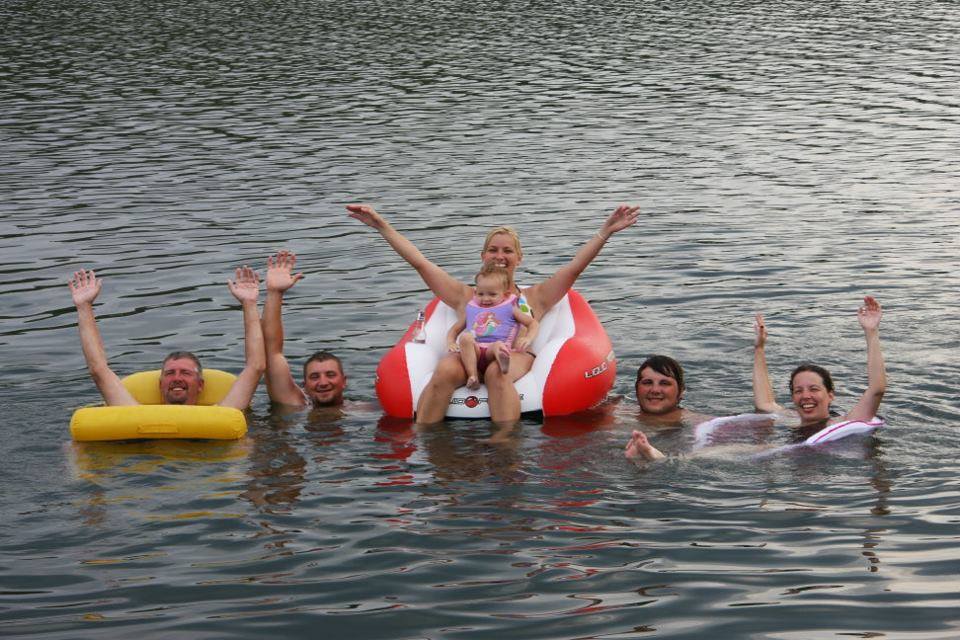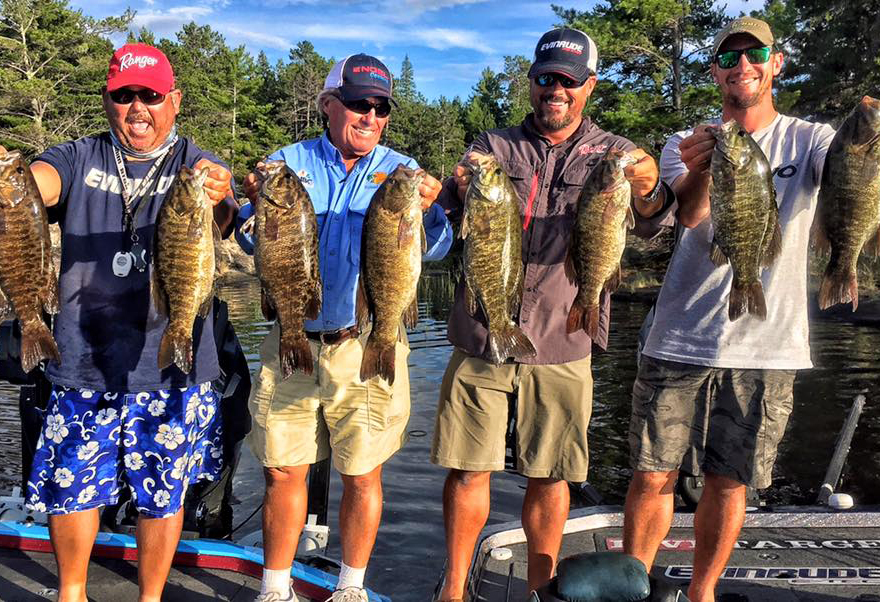It can be overwhelming to start planning a houseboat vacation; but never fear, your houseboat agents are here! Ask your agent the following questions (and any others you can think of) to clear up any uncertainties or give you extra information you may not have considered.
We want you to feel confident and prepared when planning your vacation with us. We'll help you maximize your vacation to best suit your group and your budget, and organize your information so there's no surprises later. Ask the questions below to jump-start your planning.
![]()
1. How do I choose the right houseboat for me?
Our website is a great place to start when you're first dipping your toe. Choose your location, then click on Houseboats to see a list of the options offered. When you click on each houseboat, you'll get details on how the houseboat is laid out, see photos and amenities, and the approximate cost for different timeframes.
When you call, tell us how many people you're expecting and approximately how many bedrooms and bathrooms you would prefer.
2. How much should I expect to spend on fuel?
There are several factors that will determine the amount you may spend on fuel at the end of your trip, such as the size of your houseboat, traveling speed, etc.
Typically, the engine will consume between 6-8 gallons/hour while the houseboat is in motion, and it will consume about 2 gallons/hour while running the generator alone. With fuel cost forever fluctuating, count on the cost per gallon to be $1-2 more at the marina than at the nearest town.
Generally, if you budget between $150-250 per day for fuel, you should be safe. Your agent can give you a realistic range based on location. And of course it'll depend on how much driving you do each day, and how long you run the generator.
![]()
3. How early should I make a reservation?
In short, as soon as you know what your plans are. It can be easier to have a few dates that might work for you and your group, then call us for availability. If you're planning a trip over a holiday or lake event (Memorial Day, 4th of July, Spring Break, etc) it's suggested to make a reservation 6-9 months in advance, especially if your dates are set. However, some vacations can be planned a mere 2 weeks prior in the off-seasons.
When you call to check availability, ask your agent when to call back to reserve by. Generally, you'll want to put down a deposit within a week or two of checking availability.
4. How much do I have to put down to make a reservation, and when is the balance due?
There is typically a deposit amount due upon making a reservation. Some deposits are applied toward your total like a down payment, and others are on top of the rental fee then refundable at the conclusion of your trip. Some marinas require full payment at booking, others require the remaining balance due up to 120 days in advance or even on arrival.
Payment schedules will vary based on which location; you can find details by marina under your lake's FAQ's page.
![]()
5. What happens if I need to cancel my reservation?
Ask us about any forfeitures that may occur at different increments before your arrival date.
A simple change of dates or houseboat can usually help you avoid or reduce any fees.
Payment schedules will vary based on which location, you can find details by marina under your lake's FAQ's page.
6. What kind of insurance options are there?
Just like renting a car, it's always a good idea to add insurance if available. Some of our locations offer a damage waiver of liability for a small daily fee that buys you a deductible to cover in case of an accident.
Ask if a Trip Cancellation Insurance is offered in case of emergency within the cancellation period. If the marinas do not offer this option, we recommend looking into Travel Guard or Insure My Trip.
![]()
7. What's included, and what do I need to bring from home?
Most of these rentals include bed linens and bath towels, but some rent them for a fee, and a few do not offer them at all. Linens and towels will be listed under Features on each houseboat's page, and in the FAQ's section.
In general, all you'll need to bring with you is your food and beverages, condiments and spices for cooking (down to salt and pepper), and extra towels for swimming.
A list of Items Provided are on each houseboat page, and often included with your confirmation documents. Make sure to look it over and let your agent know if any questions arise. Check out our online version of this list here: Items to Bring List
8. What else is required? Any other costs involved?
For the most part, your houseboat rental cost will cover everything except for food and fuel. But depending on which destination you plan on visiting, there may be some extra costs that are required with your rental.
For example, some locations require an additional motorized boat to tag alongside your houseboat rental for safety reasons. (Typically, the cost for these required rentals are very reasonable.) Required extras are noted in the houseboat description as well as in the Pricing tab.
Other costs that may not be included in your rental cost: propane, park entrance fees, environmental fees, etc. Ask your agent what other fees you can expect (if any) to apply at the location you are visiting.
![]()
9. Are there any restrictions while we're out on the water?
Ask about the maximum capacity for each boat (it can also be found in the Basics tab of each houseboat). What the houseboat sleeps is not necessarily the capacity of the boat. There are often rules about how many people you can have aboard the boat while it's in motion, but may allow for more while the houseboat is secured to the shoreline.
In the event that you have more people than is allowed while the houseboat is underway, you will need to bring or rent an extra watercraft (such as a powerboat or pontoon) to taxi the extras until the houseboat is moored.
10. Are there any specials or discounts available?
Our houseboat agents are usually quick to inform you about any current specials or discounts that may apply, but make sure to check out our Specials Page for more information on our current offers.
Tell your agent if you are active or retired Military, there may be a discount applicable with a valid ID.
We want to make your vacation planning as peaceful and informative as possible. We offer a wealth of knowledge, but we want to hear from you! Ask away.
Give us a call at 888-454-8825 or fill out our Online Contact Form and an agent will reach out to you soon.
.jpg)
 Your river experience will not soon be forgotten. You can enjoy an uninterrupted view of the river’s timeless beauty from inside the climate-controlled cabin or outside on the outer and upper deck. Chart your own course and see tropical birds, lush foliage, and lazy alligators while the river unfolds for your enjoyment. Occasionally a pleasure boater will hurry by you and wave while you cruise on savoring the serenity afforded by your private rendezvous with unspoiled Florida. Enjoy the sunset from the loungers on the top deck while sipping your favorite beverage. Prepare savory meals on the gas charbroiler and dine under the stars. Then let the gentle movement of the river rock you to sleep in your boats comfortable cabin.
Your river experience will not soon be forgotten. You can enjoy an uninterrupted view of the river’s timeless beauty from inside the climate-controlled cabin or outside on the outer and upper deck. Chart your own course and see tropical birds, lush foliage, and lazy alligators while the river unfolds for your enjoyment. Occasionally a pleasure boater will hurry by you and wave while you cruise on savoring the serenity afforded by your private rendezvous with unspoiled Florida. Enjoy the sunset from the loungers on the top deck while sipping your favorite beverage. Prepare savory meals on the gas charbroiler and dine under the stars. Then let the gentle movement of the river rock you to sleep in your boats comfortable cabin.
.jpg)






.jpg)




(1).jpg)



.JPG)

.jpg)



.jpg)
.jpg)







.jpg)

.jpg)

1118-Crop.jpg)











.jpg)

(1).jpg)
.jpg)
.jpg)

.jpg)





.jpg)


(1).jpg)

.jpg)
.jpg)

.JPG)







.jpg)




.jpg)



.jpg)
.jpg)
.jpg)

.jpg)


.jpg)
.jpg)








(2).jpg)


.jpg)
1118-Crop(1).jpg)
.jpg)
.jpg)
1118.jpg)
.jpg)




.jpg)





1118.jpg)
.jpg)


.jpg)



.jpg)


.jpg)


.jpg)


.jpg)

.jpg)


.jpg)

.jpg)

.png)










.jpg)
.jpg)
.jpg)









.png)
.jpg)

